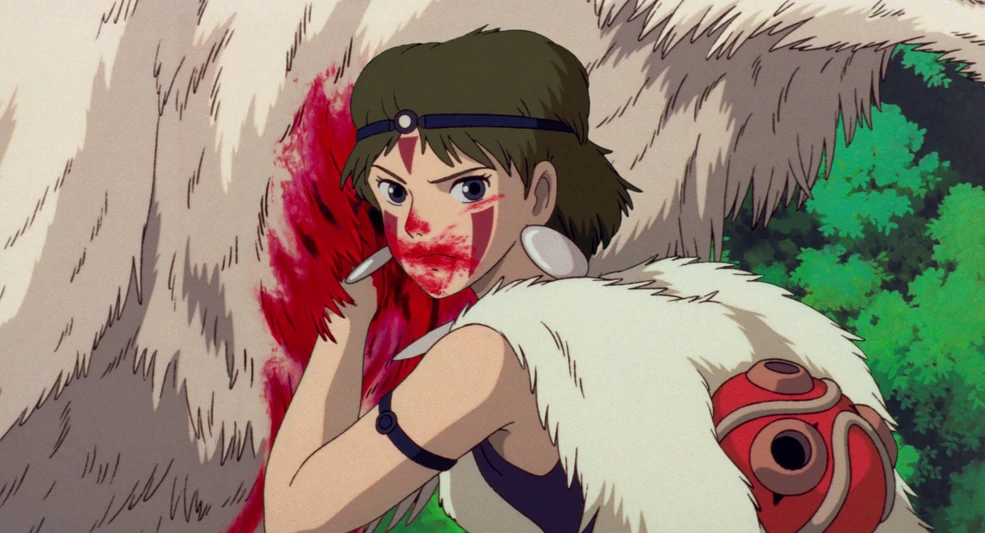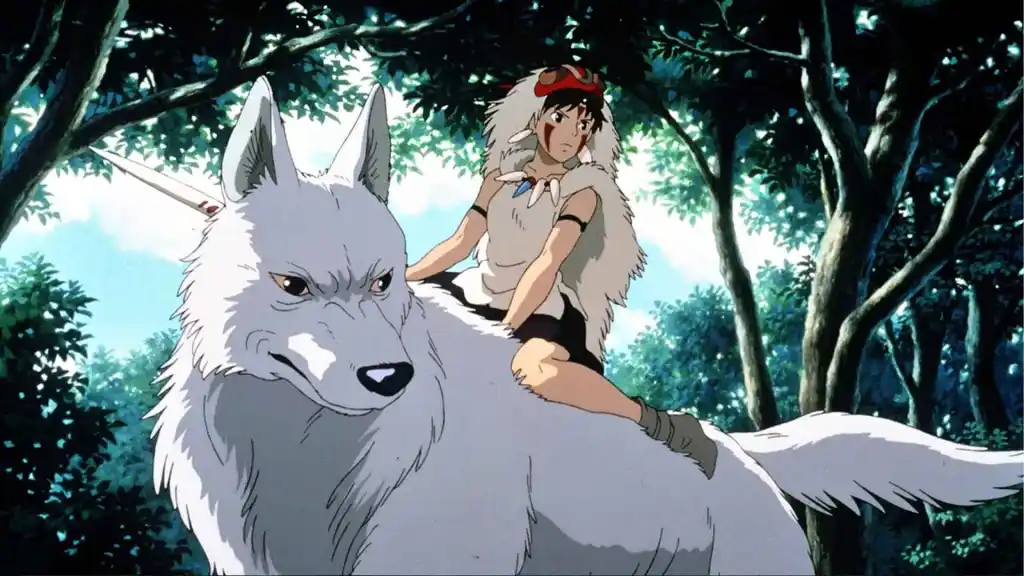Studio Ghibli is widely regarded as the gold standard in anime movies, with director Hayao Miyazaki’s works standing out for their depth and emotional resonance. Films such as My Neighbor Totoro, Howl’s Moving Castle, and the recent The Boy and the Heron have captivated audiences worldwide.
Among these masterpieces is Princess Mononoke, a film set in the war-torn Muromachi era of Japan. This movie, now available in a remastered 4K version, continues to be as powerful and moving as when it was first released. With its compelling narrative about love, unity, and the consequences of war, Princess Mononoke remains a beloved classic.
The story begins with Ashitaka, a young warrior who defends his village from a demonic boar god named Nago. In the battle, he is cursed and exiled, setting off on a journey to discover the source of the boar’s corruption. Along the way, he encounters San, known as Princess Mononoke, a fierce warrior raised by wolves and devoted to protecting the forest.
San and Ashitaka, though from different worlds, share a common goal: preserving the balance of nature and preventing the destruction of the forest gods. Their meeting sparks a profound connection, despite their initial distrust and San’s deep resentment towards humankind.
Industry and Nature Collide as Ambition Threatens Balance in Princess Mononoke
The film introduces Irontown, a settlement ruled by Lady Eboshi, who seeks to expand her industrial empire by mining iron and manufacturing weapons. Her actions, though seemingly noble—rescuing prostitutes and providing work for lepers—come at the cost of nature. She is responsible for wounding Nago, setting off the catastrophic chain of events.
Ashitaka, while admiring her compassion, recognizes the destructive consequences of her ambition. The conflict in Princess Mononoke mirrors real-world issues such as deforestation, climate change, and unchecked industrialization, making it a poignant commentary on environmental conservation.

Despite the chaos, Ashitaka and San develop a profound, albeit complex, bond. Ashitaka saves San from an ambush and, in turn, she seeks to cure him of his affliction. Unlike the others, Ashitaka refuses to succumb to violence, choosing instead to mediate peace between humans and the forest spirits.
His unwavering kindness influences San, who has been conditioned to hate humans. Their love is not romantic in the conventional sense but is based on mutual admiration, selflessness, and a shared vision for a better world. This relationship exemplifies one of the film’s central themes: the possibility of coexistence between nature and humanity.
The High Cost of Greed and the Consequences of War and Betrayal
Despite Ashitaka’s efforts, the war between humans and the forest spirits escalates. Lady Eboshi and the Emperor’s agent, Jigo, seek to kill the Forest Spirit, believing its head grants immortality. Meanwhile, Asano’s forces attack Irontown, revealing Jigo’s true, selfish motives. The battle results in widespread destruction, with the boar god Okkoto succumbing to the same corruption as Nago.
The film highlights the dark nature of war—driven by greed, power struggles, and betrayal—resembling political intrigues seen in modern media like Game of Thrones.
The climax of the film sees the Forest Spirit being decapitated, unleashing a deadly blight that ravages the land. As it searches for its stolen head, destruction spreads, illustrating the consequences of human greed. In a desperate attempt to undo the damage, Ashitaka and San return the head, allowing the spirit to heal the land before vanishing.
This bittersweet resolution reinforces the idea that while nature can regenerate, the scars of war and destruction linger. Lady Eboshi, though injured, vows to rebuild Irontown with a new perspective, symbolizing a lesson learned at a great cost.
Princess Mononoke ultimately serves as a cautionary tale about the ramifications of human greed and warfare. San, despite her affection for Ashitaka, refuses to live among humans, as she has lost faith in them. Ashitaka, understanding her pain, promises to oversee the rebuilding of civilization in a more sustainable way.
The film critiques the cyclical nature of conflict, where one side’s hero is another’s villain. The character of Jigo embodies this indifference, laughing off the devastation he helped cause. In contrast, Eboshi’s newfound remorse suggests hope for change. Through its rich storytelling and powerful themes, Princess Mononoke remains a mirror for society, urging audiences to reconsider their relationship with nature and the true cost of progress.



